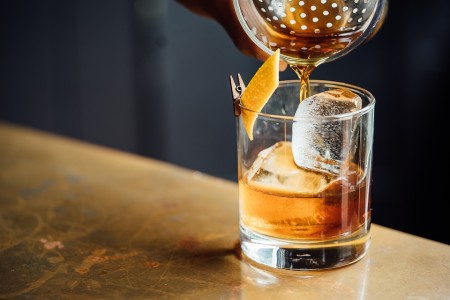Scottish Whisky Association calls for government to end trade uncertainty
As half-year export figures show growth, the Scotch Whisky Association (SWA) has called on the UK Government to ensure certainty in future trading conditions.

SWA’s analysis of official HMRC figures has revealed that the value of Scotch whisky exports increased by 10.8% to £2.19 billion in the first half of 2019. The volume of exports also increased by 7.1% to 598m 70cl bottles.
Single malts continue to grow in popularity, with exports up 18.8% to £652m in the first half of the year. They now make up 30% of the value of all Scotch shipped overseas, the analysis added. Exports of blended Scotch whisky grew too, rising 7.5% to an export valuation of £1.35bn.
The growth in exports is also set against a backdrop of Scotch whisky’s enduring popularity with worldwide customers. However, the SWA believes that a section of this year’s export growth reflects actions taken by several distillers to mitigate the risk of a no-deal Brexit in March/April by exporting some stocks early, evidenced by a spike in EU exports in Q1.
Therefore, the figures for the six months of 2019 do not necessarily reflect steady-state trade for the scotch whisky sector. They also fail to reflect the uncertainty in future trading conditions that the industry is currently having to deal with.
The SWA has warned that after Brexit, the industry will face tariffs on exports to some key global markets, alongside a rise in excise tax built into HM Treasury’s budget plans which affects Scotch whisky sales in the UK and the industry’s tax treatment in export markets.
Karen Betts, SWA chief executive, said: “It is great news for distillers, their employees and the communities in which we work – as well as for all the other businesses that work with the Scotch whisky industry – to see exports of Scotch continue to grow. Demand for Scotch whisky is growing both in developing markets, like India and in established ones like the US, Japan and Germany.
“This reflects the enduring popularity of Scotch whisky in so many cultures around the world. It also reflects our industry’s continued focus on improving trading conditions – for example, removing tariffs and discriminatory taxes – across our global markets.”
She added: “However, these figures also bring to life the uncertainties in today’s challenging trade environment. The value of exports grew more than anticipated in the first six months of 2019. We believe this was driven by action taken by producers to mitigate the risks of a no-deal Brexit and the threat of tariffs in key global markets.
“For example, there was significant growth in exports to South Korea and Morocco, both markets where tariffs could have been re-imposed if the UK had exited the EU without a deal on 29 March. While some progress has been made on continuity agreements, there is more work to be done.”
Ms Betts also said: “So as Parliament resumes after recess, we are urging the government and MPs to work constructively together to enable the UK and the EU to agree on the terms of the UK’s departure. This will give us clarity in the UK’s future trade relationships with the EU and other global markets. Prolonged uncertainty is costing the industry money in no-deal planning and in exporting as companies have, where they can, brought exports forward, incurring additional capital on additional warehouses and other associated costs.”
She added: “The UK government must take these pressures into account when deciding on duty rates in the autumn budget. Cuts and freezes to spirits duty over the last five years have increased the revenue available to government to spend on public services, while at the same time giving our industry the confidence to invest in production and tourism, benefitting communities across Scotland and our UK supply chain. Uncertainty in our trading environment means, now more than ever, that the Scotch whisky industry needs continued tax stability here at home.”










